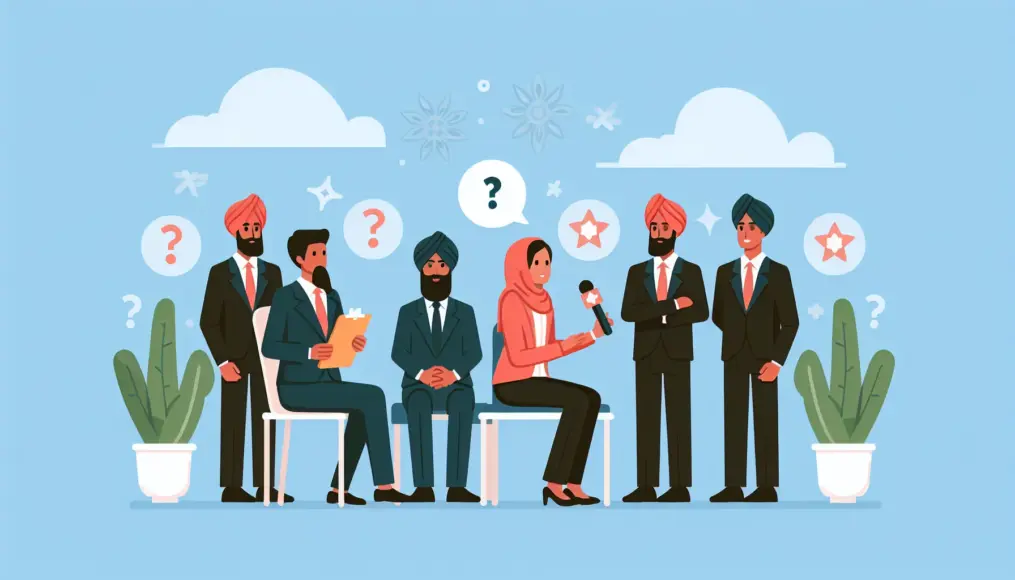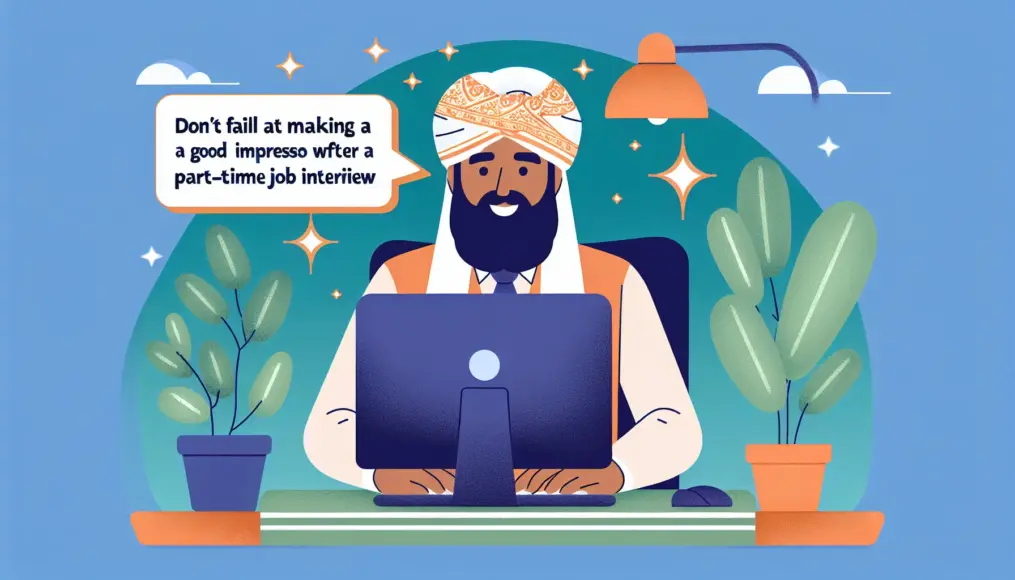Interviews can sometimes throw uncomfortable questions your way. Particularly, those inquiries that prompt you to engage in self-analysis can lead to feelings of tension and anxiety. So, how can you tackle these questions positively and with confidence?
In this article, we’ll explore the right mindset and practical strategies for handling those challenging questions during interviews. We aim to equip you with valuable insights to enhance your interview preparation, so be sure to read through to the end.
- Understanding the interviewer’s intentions and preparing your mindset
- A breakdown of common uncomfortable questions and how to address them
- Techniques to answer with confidence and tips for effective follow-up
Preparing for Tough Questions in Interviews
During interviews, you might encounter some uncomfortable questions that can catch you off guard. How you respond to these questions can significantly influence the impression you leave on the interviewer. Therefore, it’s essential to prepare yourself mentally and understand the interviewer’s intentions.
Understanding the Interviewer’s Intent
When an interviewer asks you a difficult question, it’s often to assess your personality and suitability for the role. Interviews are not just about verifying your skills and experience; they also provide a platform for the interviewer to learn about your thoughts and values. So, try to see the meaning behind those tough questions.
For instance, a question like “Can you tell me about a time you failed?” is designed to gauge your problem-solving abilities and willingness to grow. By understanding the context of the interviewer’s questions, you can better prepare yourself mentally for the interview.
- Interviewers ask questions to assess your personality and fit for the role.
- Consider that tough questions have their purpose.
- Understanding the context of questions can help you mentally prepare.
How to Manage Your Emotions
Receiving an uncomfortable question can sometimes trigger a strong emotional response. In such moments, it’s crucial to take a deep breath and calm yourself. Allowing yourself a moment to think calmly can lead you to a more thoughtful response.
Additionally, it’s beneficial to anticipate common questions ahead of time to organize your thoughts. Reflect on your experiences and values, focusing on the positive aspects. Being mentally prepared allows you to confidently answer even the most challenging questions from the interviewer.
Furthermore, as part of your interview preparation, I recommend checking out Tips to Avoid Deep Dives in Public Sector Interviews: Preparation and Strategy Guide. This can help you formulate a more effective interview strategy.
- Take deep breaths to maintain your composure.
- Anticipate common questions in advance.
- Focusing on the positives can boost your confidence.
Common Unpleasant Interview Questions and How to Tackle Them
Interviews can be nerve-wracking, especially when faced with certain questions that make us cringe. Among these, inquiries about past failures or discussing strengths and weaknesses tend to catch many off guard. Today, we’ll delve into how to handle these uncomfortable questions effectively.
Questions About Past Failures
One of the most dreaded questions in interviews is, “Can you tell me about a time you failed?” For many, discussing personal failures can feel embarrassing and may raise concerns about leaving a negative impression. However, it’s important to recognize the positive angle of this question.
Interviewers are not just interested in your failures; they want to understand how you overcame them and what lessons you learned from those experiences. When sharing your failure story, be sure to emphasize the actions you took afterward and the insights gained. This approach showcases your growth mindset and problem-solving skills.
- Don’t feel embarrassed about discussing failures.
- Interviewers value your growth journey.
- Highlighting lessons and actions can create a positive impression.
Addressing Strengths and Weaknesses
Another challenging question many dread is, “What are your strengths and weaknesses?” It can be tough to evaluate ourselves objectively, and discussing weaknesses can feel particularly uncomfortable. Yet, this question is also crucial for interviewers to gain insight into who you are.
When discussing your strengths, it’s essential to provide specific examples of how you’ve leveraged those strengths in past situations. As for weaknesses, honesty is key, but it’s equally important to communicate how you’re working to improve upon them. By balancing your strengths and weaknesses in your response, you can leave a favorable impression. Additionally, knowing how to demonstrate your resilience under stress can further enhance your effectiveness in interviews. For more details, check out how to showcase your stress resilience in interviews.
- Explain strengths with specific examples.
- Be honest about weaknesses and share your improvement efforts.
- Striking a balance in your responses can enhance your impression.
Practice Techniques for Answering with Confidence
To confidently tackle those tough interview questions, preparation is key. One of the most effective methods is to engage in mock interviews, which can help you gear up for the real thing. Receiving feedback on your performance is also crucial for refining your answers.
Practicing with Mock Interviews
Mock interviews simulate a real interview environment, making them highly effective for practice. You can ask friends or family to play the role of the interviewer, allowing you to experience genuine questions. When facing particularly challenging questions, it’s beneficial to organize your thoughts beforehand.
After the mock interview, take some time to reflect on which questions you answered well and where you stumbled. This reflection is vital for your next round of preparation. With consistent practice, you’ll be able to respond confidently on the actual interview day.
- Practice in a realistic environment with mock interviews
- Ask friends or family to act as interviewers
- Reflect on your performance to improve for next time
Leveraging Feedback
Receiving feedback after your mock interview is incredibly important. Hearing perspectives from others can help you identify areas for improvement that you might have overlooked. It’s particularly useful to get feedback on your responses to difficult questions, as well as your body language and tone of voice.
After gathering feedback, use it to guide your next practice session. Experimenting with different ways to answer the same question can enhance your adaptability. By preparing confident responses in this way, you’re setting yourself up for success in the interview.
- Identify improvement areas through feedback
- Listen to diverse perspectives
- Experiment with different responses to build flexibility
If you want to further enhance your interview preparation, consider checking out reverse questions for executive interviews! Key points for a successful career change.
Making a Great Impression with Follow-Up After an Interview
Following up after an interview is a crucial step in leaving a positive impression. Expressing gratitude, in particular, can have a significant impact on how interviewers remember you. Additionally, reflecting on your performance is vital for improvement in future interviews.
Send a Thank-You Email
As soon as the interview wraps up, it’s a good idea to send a thank-you email promptly. In this email, express your appreciation for the opportunity to interview. To make it more effective, include specific details from your conversation or mention something that stood out to you during the interview.
Sending a thank-you email showcases your politeness and sincerity. This small gesture can help differentiate you from other candidates. Don’t forget to follow up after the interview, and you might also find it helpful to check out tips for expressing gratitude after the interview with a phone call! Five key points for success.
- Send your thank-you email promptly after the interview
- Include specific details in your email
- Highlight your politeness and sincerity
Reflecting for Future Improvement
Once the interview is over, taking the time to reflect on your performance is essential. By reviewing your answers and the interviewer’s reactions, you can identify areas for improvement for the next time. It’s especially useful to think about how you responded to challenging questions.
This reflection process can lead to personal growth and provide you with concrete strategies for future interviews. Thus, taking the time to reflect after an interview can pave the way for your future success.
- Make sure to reflect after the interview
- Analyze your answers and the interviewer’s responses
- Consider your growth and strategies for improvement
Summary
Facing tough questions in interviews is something many people go through. However, with some preparation and the right mindset, you can confidently tackle these challenges. By practicing mock interviews, seeking feedback, and following up after your interview, you can make a positive impression and improve for next time.
- Understand the interviewer’s intentions and get in the right frame of mind
- Respond to challenging questions with specific examples
- Don’t forget to follow up after the interview
Interviews are a chance for you to express yourself, so make sure to showcase who you are. Feel free to share your experiences and thoughts in the comments!



Comment